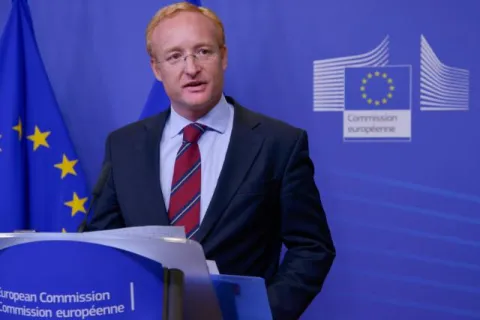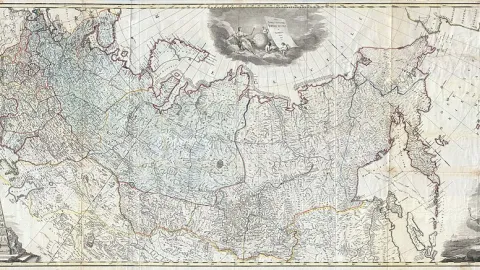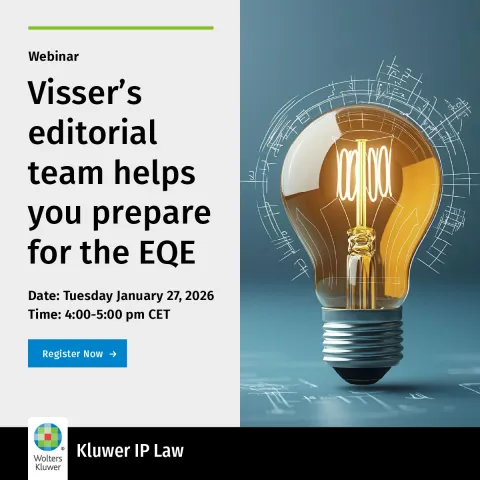Deepening social tensions and an 'extremely hostile' president at the EPO
May 3, 2022
Social tensions at the European Patent Office seem to have reached new lows in a meeting last week between an 'extremely hostile' EPO president Antonio Campinos and staff representatives.

The hostility displayed by the President was so extreme that he was requested on several occasions, by both staff representatives and even one member of the administration, to try to continue the meeting in a more respectful manner. (…)
It is difficult to convey the degree of unprofessionalism shown during the meeting. In an attempt to do so, we note just one of the phrases that was used by the President:
"You will never have such a nice person being the f***ing President for the next fifty f***ing years. So you wake up and make agreements with me, or you never will for your f***ing life."
With time, we observe that the level of disrespect towards us has been growing. We cannot continue to allow this escalation. According to Article 38(5) Service Regulations, the GCC discussions are recorded, and as such we request that this recording be made available to allow full transparency.
A meeting conducted under such conditions, where arguments could not be exchanged and where questions could not be answered, cannot be considered to have provided a meaningful consultation. It was also patently clear that that the President had absolutely no intention of taking heed to any of the arguments that were presented by us.
This is the reason why the CSC members of the GCC have sent him a letter asking to reconvene a GCC meeting in order to provide an opportunity to discuss the documents put on the agenda.’
In reaction to a query by Kluwer IP Law, a spokesperson said the EPO would react on the events first in an internal note, which is expected to be circulated tomorrow, and would then be provided.
However, it is already clear that the relationship between staff (representatives) and the management has deteriorated to deeply troubling levels, and president Campinos has not at all succeeded in ending the social problems which were characteristic of the era of his predecessor Benoit Battistelli.
Tensions have risen among others due to a series of judgments of the Administrative Tribunal of the International Labour Organization (ILOAT) in 2021 and early 2022. In one of these, it declared that Battistelli abused his power in various ways when and after implementing new rules in July 2013 to restrict the rights of staff members to strike. According to another decision, the EPO violated the fundamental right of free association of its staff in 2014 by giving Battistelli the power to determine the detailed conditions relating to the staff committee elections.
The judgments and other issues led to industrial actions, called for by the SUEPO trade union earlier this year, culminating in a strike on 22 March 2022, during the meeting of the EPO’s Administrative Council.
General Consultative Committee meetings are held several times each year, depending on the need by the EPO to present policy changes to the Administrative Council. Last week, mobility policy was on the agenda. The GCC is the only statutory group where consultation of staff representatives (the Central Staff Committee) and top management is organised. The aim is to allow exchange, comments and improvements of management proposals before their submission for approval by the Administrative Council.
You may also like















Warf Warf
Why am i not surprised...sighs
Concerned observer
Close observers of the EPO's increasingly disdainful attitude towards those holding "dissenting" opinions will not be particularly surprised by this report of disrespectful and unprofessional behaviour. However, the big question here is whether the AC will be willing and able to hold the President to account. If the President were an ordinary EPO employee, then the behaviour attributed to him in the report would represent a clear breach of the standards of conduct set out in the Service Regulations. In particular, it would breach Article 14(2): "An employee shall at all times treat others, inside and outside the European Patent Organisation ... with professional respect and discretion". There is also a strong case that it would constitute harassment (of the staff representatives) under Article 14b(1) and (2): "(1) An employee shall contribute to a work environment in which each individual is treated with respect and dignity. An employee or former employee shall refrain from engaging in any act of harassment or sexual harassment. (2) Harassment is any unwelcome, severe or recurring, verbal, written or physical conduct which has the purpose or effect of humiliating or degrading any person, thereby creating an intimidating, hostile or offensive work environment, or of unreasonably interfering with that person's work or their ability to perform their assigned duties. Harassment includes, but is not limited to: (a) behaviour which is intended to be, or can reasonably be perceived as, inappropriate, offensive, intimidating, or hostile; (b) vexatious assignments, requests or changes in duties or responsibilities; or (c) severe or persistent criticism which is either unjustified or expressed in such a manner that it harms the dignity of an individual or his reputation". But of course the President is subject to a different disciplinary code. One that let the previous incumbent off the hook for very serious transgressions, including threatening the independence of the EBA. In this respect, if past is prologue, then the response of the AC will amount to nothing more than a deafening silence. It is astonishing to witness the double standards and hypocrisy evident in a system that enables the unlawful targeting of union officials (and other staff members) for undeserved punishment whilst failing to provide any accountability for the individual who not only masterminds that punishment but also commits multiple acts that, but for the position of that individual, would represent breaches of the Service Regulations of the organisation that they head. As long as immunity leads to impunity at the EPO, it is hard to see how things can improve. On the other hand, it is easy to see how things can get considerably worse. As the old saying goes, power corrupts. And as the events of the past decade illustrate, adding impunity to the mix only turbo-charges the negative effects of power.
Patent robot
The UPC and the EPC are sinking ships but at least the EPC has a possible remedy: Article 4a EPC - Conference of ministers of the Contracting States A conference of ministers of the Contracting States responsible for patent matters shall meet at least every five years to discuss issues pertaining to the Organisation and to the European patent system. This article has NEVER been applied and it is really time to do so!